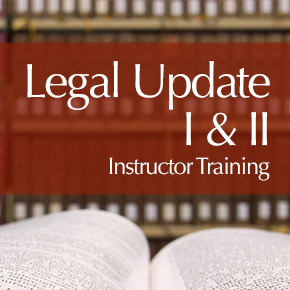
‘Good Facts’ Can Reduce Taxes

 Some tax advisors refer to client situations as having either “good facts” or “bad facts.” As you might suspect, good facts typically lead to favorable tax results while the opposite is true for bad facts. In real estate scenarios, good facts pertain to adequate documentation of business activities as well as the activities themselves. The tax cases described here provide examples of how real estate holdings led to favorable tax treatment because of the taxpayers’ good facts. Good tax planning aided by expert tax advice can lead to good tax facts.
Some tax advisors refer to client situations as having either “good facts” or “bad facts.” As you might suspect, good facts typically lead to favorable tax results while the opposite is true for bad facts. In real estate scenarios, good facts pertain to adequate documentation of business activities as well as the activities themselves. The tax cases described here provide examples of how real estate holdings led to favorable tax treatment because of the taxpayers’ good facts. Good tax planning aided by expert tax advice can lead to good tax facts.
The first example of good facts concerns a recent tax court case involving the Fitches. Mr. Fitch is a CPA and Mrs. Fitch is a Realtor. They owned eight rental properties in California. The Fitches maintained careful records documenting their day-to-day management of the properties. They personally performed almost all of the following: bookkeeping, repairs, contractual arrangements, tenant screening, advertising, paying taxes and utilities, acquiring insurance, and working with homeowner associations. There were tax losses on all of the properties for the tax years in question. The Fitches chose to go to tax court because the IRS disallowed virtually all of their rental property deductions.
Mr. Fitch and his brother co-owned one of the properties and tried to sell it immediately after it was inherited from their mother. However, they were not able to attract a satisfactory offer. Mr. Fitch decided to purchase his brother’s one-third interest in the property so it could be rented. The purchase was a key factor in the eyes of the court. But in addition, the Fitches used a “for rent” sign, advertised on Craigslist, and obtained insurance for landlord protection. “Credible testimony” was given in court regarding weekly property management. The tax court ruled against the IRS and allowed all related expenses to be deductible even though the property was never actually rented.
For another property, Mrs. Fitch testified that she and her husband were the key people involved in advertising, decorating, working with contractors, selecting tenants, and handling the keys and lockbox. The IRS argued that the Fitches’ testimony should be disregarded on the grounds that it was self-serving, but the court found their testimony to be “credible and persuasive,” resulting in a loss for the IRS and a win for the Fitches.
Another example of a taxpayer victory occurred in a case involving Hattie Bonds. Ms. Bonds converted her Kansas City home from a personal residence to a rental property when she moved to Minnesota. The property was rented to a variety of tenants. However, during one year in particular, Ms. Bonds was unable to rent the property. The court was impressed by the fact that Ms. Bonds continued to try to rent the property even though it had appreciated in value.
While Ms. Bonds did not have complete documentation of her expenses, the court viewed the other evidence as sufficient, such as mortgage documents and some bills. Thus, the court was willing to estimate her deductions by applying the “Cohan rule.” This rule was established in 1930 in a case involving George M. Cohan, a famous actor, playwright and musical artist. In Mr. Cohan’s case, the court was willing to estimate deductible entertainment and travel expenses based on documentation showing that he made many trips and held parties attended by other celebrities.
In general, the IRS would rather settle or compromise with a taxpayer than go to court and lose. All court cases become public information, and the IRS does not normally want to give taxpayers “ammunition” to use to game the system to save taxes. Over 90 percent of disputes with the IRS are settled out of court, according to taxattorneydaily.com and investopedia.com. Thus, it is not surprising that the large majority of cases that end up in tax court result in IRS victories. For those going to court, taxpayers have only won part or all of their cases approximately 14 percent of the time, according to the IRS Taxpayer Advocate’s office.
Good facts resulting in taxpayer victories don’t always occur on their own. Astute tax planning can help. Such tax planning can be obtained with the help of a tax accountant or attorney knowledgeable in real estate matters.
____________________
Dr. Stern ([email protected]) is a research fellow with the Real Estate Center at Texas A&M University and a professor of accounting in the Kelley School of Business at Indiana University.

You might also like

Publications
Receive our economic and housing reports and newsletters for free.





